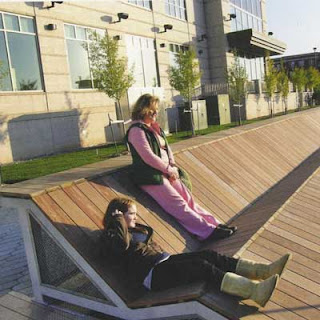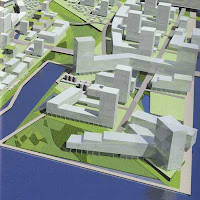Excited to have a chance to head up to Seattle for tomorrow’s lecture as part of the NOW Urbanism series at University of Washington. Look for a report of the festivities in coming days.
Chris ReedstossLU, Boston
Chris Reed is an Adjunct Associate Professor of Landscape Architecture at Harvard University’s Graduate School of Design, and founding principal of Stoss Landscape Urbanism, a Boston-based strategic design and planning practice. Reed is a registered landscape architect with professional interests in strategic planning and urban framework design. His research interests include infrastructure and urbanism in the contemporary North American metropolis, with a recent focus on Los Angeles; the recalibration of engineering and infrastructural technologies toward an expanded and hybridized notion of a landscape-based urbanism; and a reconsideration of the meaning and agency of ecology in design practices and design thinking.
Reed’s own work has been awarded, exhibited and published nationally. He lectures internationally, and has taught at the University of Pennsylvania, the University of Wisconsin-Milwaukee, the Rhode Island School of Design and Florida International University.”
Randy Hester Landscape Architecture, University of California, Berkeley
Professor Hester’s research focuses on the role of citizens in community design and ecological planning. He is one of the founders of the research movement to apply sociology to the design of neighborhoods, cities and landscapes. His current work is a search for a design process to support ecological democracy. Topics of special interest include Citizen Science, Stewardship, Sacred Landscapes, and Environmental Justice.


Howard FrumkinDean, UW School of Public Health
Howard Frumkin is Dean of the University of Washington School of Public Health. He is an internist, environmental and occupational medicine specialist, and epidemiologist. From 2005 to 2010 he served leadership roles at the U.S. Centers for Disease Control and Prevention, first as director of the National Center for Environmental Health and Agency for Toxic Substances and Disease Registry, and later as Special Assistant to the CDC Director for Climate Change and Health. Previously, he was Professor and Chair of the Department of Environmental and Occupational Health at Emory University’s Rollins School of Public Health and Professor of Medicine at Emory Medical School.
His research interests include public health aspects of the built environment; air pollution; metal and PCB toxicity; climate change; health benefits of contact with nature; and environmental and occupational health policy, especially regarding minority communities and developing nations. He is the author or co-author of over 180 scientific journal articles and chapters and several books.



